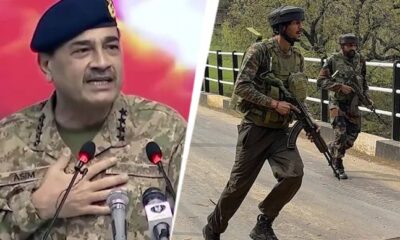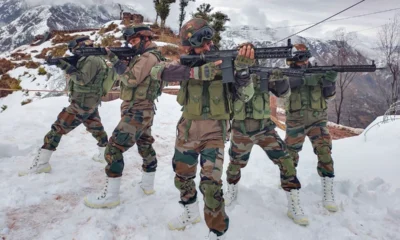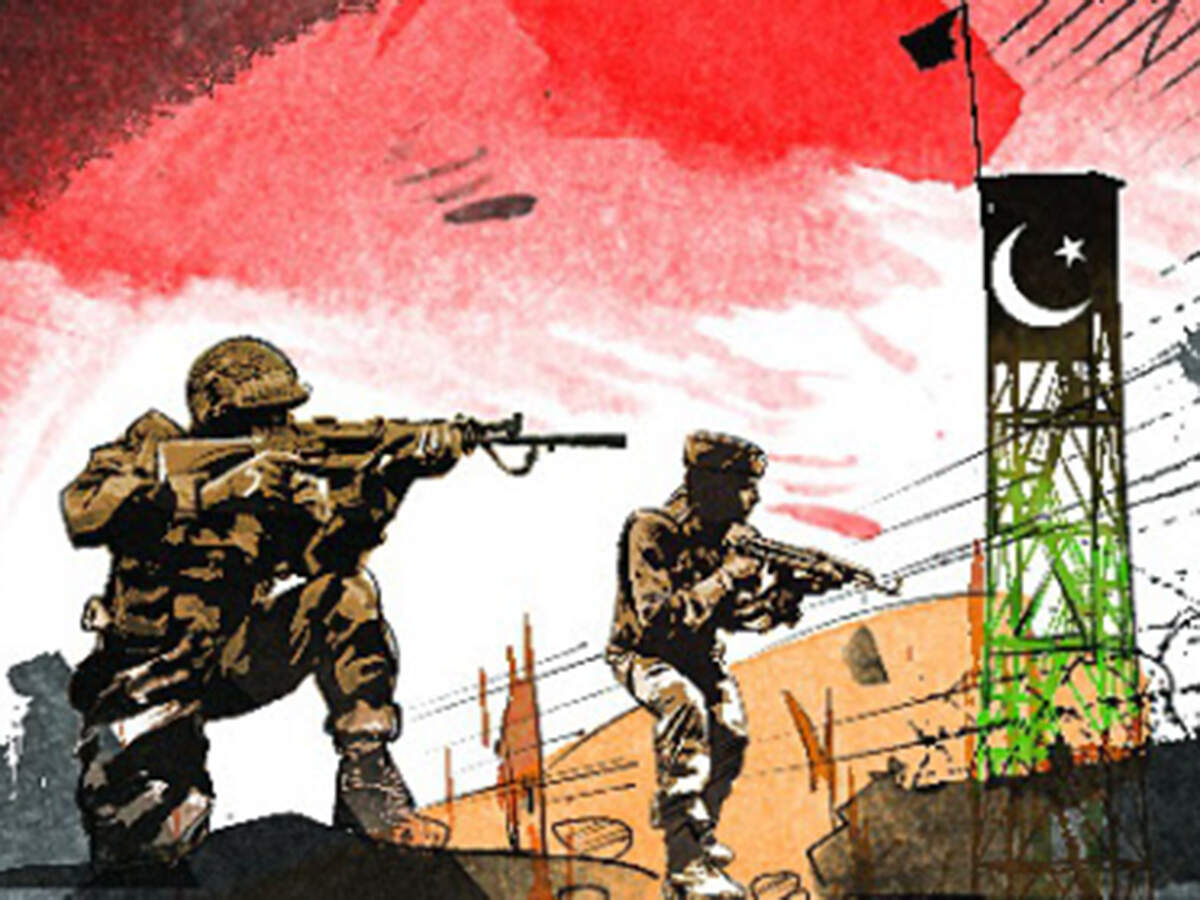In the quiet hours of dawn on May 7, 2025, India’s armed forces executed Operation Sindoor — a carefully orchestrated response targeting nine terror camps across Pakistan and Pakistan-occupied Kashmir. This was not a declaration of war. It wasn’t a conventional battle. It was a calibrated military maneuver — precise, surgical, and strategically focused.
This marks a shift in India’s approach. Faced with consistent cross-border terrorism, exemplified by the brutal Pahalgam attack on April 22, which claimed 26 lives — mostly Hindu — India has concluded that Pakistan doesn’t deserve a full-scale war. What it deserves is precision, not escalation. What it needs is assertion, not grand declarations.
And that’s precisely what Operation Sindoor achieved.
What began as an ordinary spring night in Pakistan-occupied Kashmir ended in the destruction of terror launchpads, as precision-guided missiles hit their targets. In just seven minutes, nine key locations linked to groups like Lashkar-e-Taiba and Jaish-e-Mohammed were leveled. There were no speeches, no grand declarations — just quiet determination from India and a calculated silence that followed.
Operation Sindoor was not about seeking vengeance. It was about sending a clear message.
Because, in truth, Pakistan doesn’t deserve war. It deserves something much more effective — something that strikes where it hurts, without fanfare, and avoids unnecessary escalation.
It deserves calibrated military maneuvering — and that’s exactly what India delivered.
Why Pakistan No Longer Qualifies for War
There was a time when India and Pakistan were seen as two nuclear-armed rivals — a tense and volatile standoff that, while unequal in power, still carried the weight of parity. But things have changed. Today, Pakistan simply doesn’t deserve the dignity of full-scale war.
Why? Because war requires balance — in economy, diplomacy, and moral standing. Pakistan falls drastically short on all three.
- Economically, it’s struggling to breathe. With growth projections of just 1.5% this year and inflation spiraling over 20%, the country’s foreign reserves can barely cover two months of imports. IMF bailouts offer only temporary relief to a system deeply fractured at its core.
- Diplomatically, its global image is in tatters. The Financial Action Task Force (FATF) has kept Pakistan on its grey list for years, and world leaders are increasingly skeptical of the “non-state actors” excuse. Even longtime allies, from Riyadh to Beijing, are slowly pulling back their support.
- Morally, its credibility is in ruins. You can’t shelter militants one day and preach peace the next. The world has grown weary of Pakistan playing both arsonist and firefighter, fueling violence while feigning calls for calm.
So, what remains?
Just enough strength to inflict pain — but not enough to sustain a war. That’s why India’s response needs to be calibrated — not a full-scale conflict, but a targeted, strategic approach. It’s not only the most rational option, it’s the moral and logical choice.
The Doctrine of Surgical Strikes
When India speaks of “calibrated military manoeuvres,” it’s not trying to be vague. It’s being precise. The doctrine is simple and direct:
- Limited engagement
- No territorial ambitions
- Minimal civilian impact
- Maximum strategic impact
Think back to the 2016 Uri surgical strikes. Then, the 2019 Balakot airstrikes. And now, consider Sindoor — a swift, multi-agency, tri-service operation backed by intelligence that lasted less than ten minutes but sent shockwaves through months of strategic thinking.
No cities targeted. No flags burned. Just the terror camps — the breeding grounds of violence — destroyed.
It’s not about escalation. It’s about enforcement.
A Message Beyond Borders
What does India gain from these precise actions?
- Deterrence without chaos: Each strike reinforces boundaries, ensuring the message is not only delivered but clearly understood and remembered.
- Domestic confidence: The Indian public no longer feels powerless. From Kashmir to Kerala, there’s a shared belief: If they strike us, we will respond — quickly and intelligently.
- Global credibility: India has shown it can combat terrorism while maintaining a measured approach. That balance is key. This is why, after Operation Sindoor, the world largely understood India’s stance.
The U.S., UK, and France all urged de-escalation, but none outright condemned India. Even China, Pakistan’s closest ally, called for restraint, but stopped short of expressing outrage.
The lack of condemnation on the global stage? That was a form of support, wrapped in diplomatic caution.
But What If It Escalates?
It’s the question many skeptics ask: What if Pakistan retaliates?
The truth is, it might — but any response will likely be limited and symbolic. An airspace closure. Some artillery exchanges along the LoC. A hastily called press conference accusing India of aggression.
But a full-scale war? That’s not in Pakistan’s interest — nor within its capabilities.
War requires money, morale, and international goodwill — resources Pakistan simply doesn’t have. Unlike in 1999, it no longer enjoys a global support base sympathetic to its cause.
India, on the other hand, understands the delicate balance. Our response isn’t designed to provoke war but to make it unnecessary. That’s the power of precision.
When the Moral High Ground Is Also Tactical
There’s another important aspect that often gets overlooked.
By opting for surgical strikes instead of full-scale conflict, India doesn’t just appear smart — it appears morally right.
War would bring civilian casualties, destroyed infrastructure, and the end of any possibility for dialogue. A calibrated strike, however, targets only the perpetrators, while offering the rest of Pakistan the chance to reconsider its course.
It’s not about being soft. It’s about a strategy that is both effective and guided by conscience.
Striking Back, Not Blowing Up
So, where do we stand?
Pakistan is cornered — economically fragile, diplomatically isolated, and strategically outpaced. Yet, it remains capable of dangerous bursts.
India, however, is demonstrating a new form of power: the ability to respond, not react. We don’t need tanks charging across borders to make a statement. A drone strike here, a missile there, and the message is unmistakable.
We won’t remain silent, but we won’t act recklessly either.
Operation Sindoor may have lasted mere minutes, but its impact will resonate for years: India doesn’t need a full-scale war to assert itself. It simply needs to remind the world — and its neighbor — that some lines, once crossed, are permanently erased.
By Shashi Singh

 Opinion7 days ago
Opinion7 days ago
 Culture & Society5 days ago
Culture & Society5 days ago
 Culture & Society4 days ago
Culture & Society4 days ago
 Business5 days ago
Business5 days ago
 Business1 week ago
Business1 week ago
 Culture & Society1 week ago
Culture & Society1 week ago
 Culture & Society7 days ago
Culture & Society7 days ago
 Tech3 days ago
Tech3 days ago
















